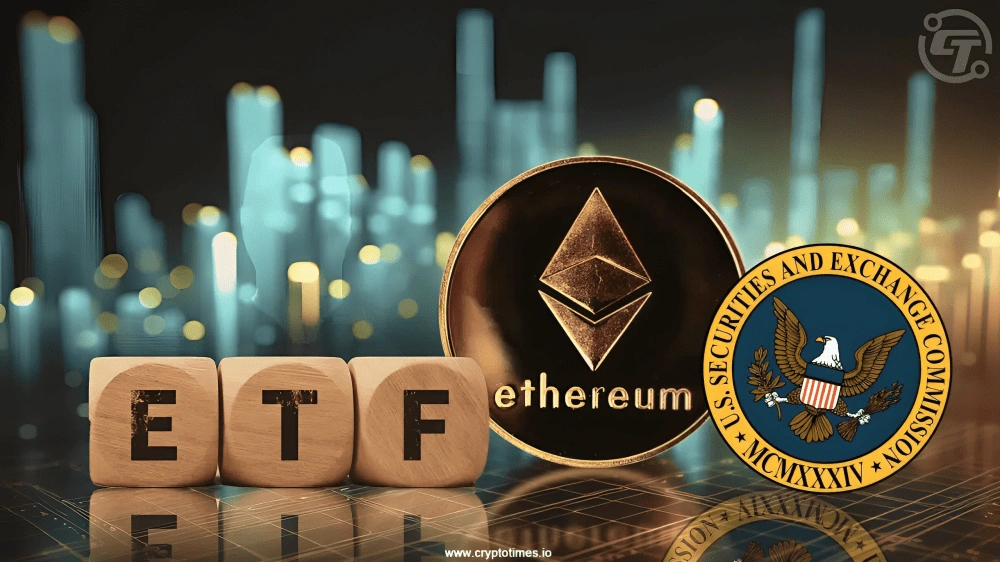The confluence between cryptocurrency and politics is today more conspicuous than before as political activities, in this case, election, greatly influence the prices of digital assets. Pearls of closely watched cryptocurrencies like Ethereum (ETH) seem to be very sensitive to time variations caused by events occurring worldwide, such as U.S. elections. As latest US elections results are put across, a myriad of crypto fanatics and traders will start asking: To what extent will these political outcomes affect the price of Ethereum?
How United States Elections Influenced Ethereum and Other Crypto-Currencies
The price of Ethereum, like other cryptocurrencies, is formed by several factors; from technological advancement to market adoption and global economic conditions. But probably the most powerful shaker of the market, regulatory decisions, and investor confidence among the crypto sector comes from the U.S. elections-the powerhouse of global economy.
1. Legislation and Government Policy
The effect of the U.S. government on the cryptocurrency is one of the most significant factors that have created influence on the price of Ethereum. The different political parties and politicians don’t have the same approach when discussing how to regulate crypto. This directly translates to what happens in the markets. An administration that is really friendly towards crypto perhaps embraces more institutional adoption of cryptocurrencies like Ethereum and could, thus increasing demand and the price of that coin. In contrast, if the stance of the government becomes more discouraging with regard to involvement in backdoor regulation, one would assume that those effects could be felt.
For example, in the past, whenever politicians or government actors sounded warning bells about impending regulatory crackdowns, prices for digital currencies-opinions and Ethereum-have typically suffered declines. On the contrary, positive public statements for blockchain or favorable regulatory environment tend to raise investor sentiment and, consequently, prices.
2. Economic Stimulus and Inflation Anxiety
U.S. elections have a significant bearing on fiscal and monetary policy, which feeds into the changing inflation rate and, hence, the worth of the dollar. Such government spending increases as through an election or a new economic stimulus package typically raise fears of increased inflation. This is especially true for Ethereum, as most investors take cryptocurrencies as a hedge in value against inflation.
Institutions and retail investors are being attracted to Ethereum more during such inflation and economic uncertainty for value storage. If the election brings about policies that are perceived as inflationary or erodes faith in the dollar, Ethereum as well as other cryptocurrencies are likely to witness abrupt price surges as capital moves into decentralized assets.
3. Market Sentiment and Volatility
The American elections usually throw the financial market into intense uncertainty and volatility. Ethereum is one of the most traded and recognized currencies in the world and cannot escape this reality. Traders and investors tend to react quickly to political scenes, and thereby market emotions can turn from bullish to bearish rapidly within hours or days depending on the outcome of elections.
When the result is close or contested, market instability can create some price variations for Ethereum, as investors get more cautious regarding possible future political uncertainty. On the contrary, clear-cut and decisive outcomes of an election usually calm the markets and even help with the direction toward which prices may move.
4. Global Adoption of Blockchain Technology
U.S. political decisions vice versa could also determine what would be in the global narrative concerning the adoption of blockchain technology and its effects. If the newly elected government came out greatly favoring blockchain and decentralized finance (DeFi) applications, the chances might be favorable for creating the global legitimacy accorded to Ethereum, with possible–but not guaranteed–consequences for pushing its price higher. The U.S. is a big part of the world financial system. Hence, policies that favor the development of innovations in cryptocurrencies might inspire other nations to follow suit as well.
Ethereum, in particular, is keenly the leader in decentralized finance (DeFi) and smart contract technology. Policies that advance these sectors could rejuvenate the investor interest and add bullish momentum to Ethereum.
Historical Influence of U.S. Elections on Ethereum Price
In looking back at past U.S. elections, one can observe how Ethereum’s price reacted to political events:
- 2020 U.S. Presidential Election: The upcoming elections saw the price of Ethereum appreciate sharply during the months leading to the elections and afterward, attributed primarily to increasing institutional interest in cryptocurrencies and a general economic recovery. Singular economic stimulus packages by the U.S. government and talks of inflation apprehensions also contributed to climbing crypto prices.
- 2024 U.S. Presidential Election: With the 2024 election coming up, it might still impact Ethereum’s price, as might any other political event. In the instance of results leading to policies perceived as favorable to the crypto industry, Ethereum should enjoy upward price movement, given digital assets still find currency as an alternative to traditional markets.
What to Expect for Ethereum After the Election Results
United States elections often bring with them increased volatility in the financial markets. Depending on the outcome of the elections and the surrounding political rhetoric, short-term sharp fluctuations in Ethereum prices can be expected. However, it also has the potential for benefiting in the long run as an economic entity through policies that democratize technology and increase demand for decentralized financial solutions worldwide.
- Bullish Outlook: This could steer Ethereum into a bullish path if however, the new leaders who emerge belong to the support of cryptocurrencies. Positive regulations and policy-making could help in increasing institutional investment and mainstream acceptance. Similarly, developments in Ethereum’s growing DeFi space, as well as its transition to Ethereum 2.0 — which focuses on scalability and energy efficiency — are greatly positive catalysts for price appreciation.
- Bearish Outlook: The election results may be responsible for tightening cryptocurrency regulations or increasing scrutiny over digital assets; these are the times Ethereum is likely to go down. Uncertainty created around potential crackdowns on crypto-related activity may contribute to negative sentiment in the markets.
Conclude
U.S. elections influence the process by which Ethereum will take in price movement, especially through regulatory decisions, economic policy, or market sentiment. Cryptocurrency investors must watch the elections and government actions closely to understand their impact on Ethereum prices. Short-term volatilities are natural after political happenings, but the future of Ethereum will long-term depend on the larger picture of regulations and the increasing surrounding global adoption of Blockchain technology.
As ever, it is crucial to remain informed and ready for the sways of the market when traversing the changeable realm that is cryptocurrency.





